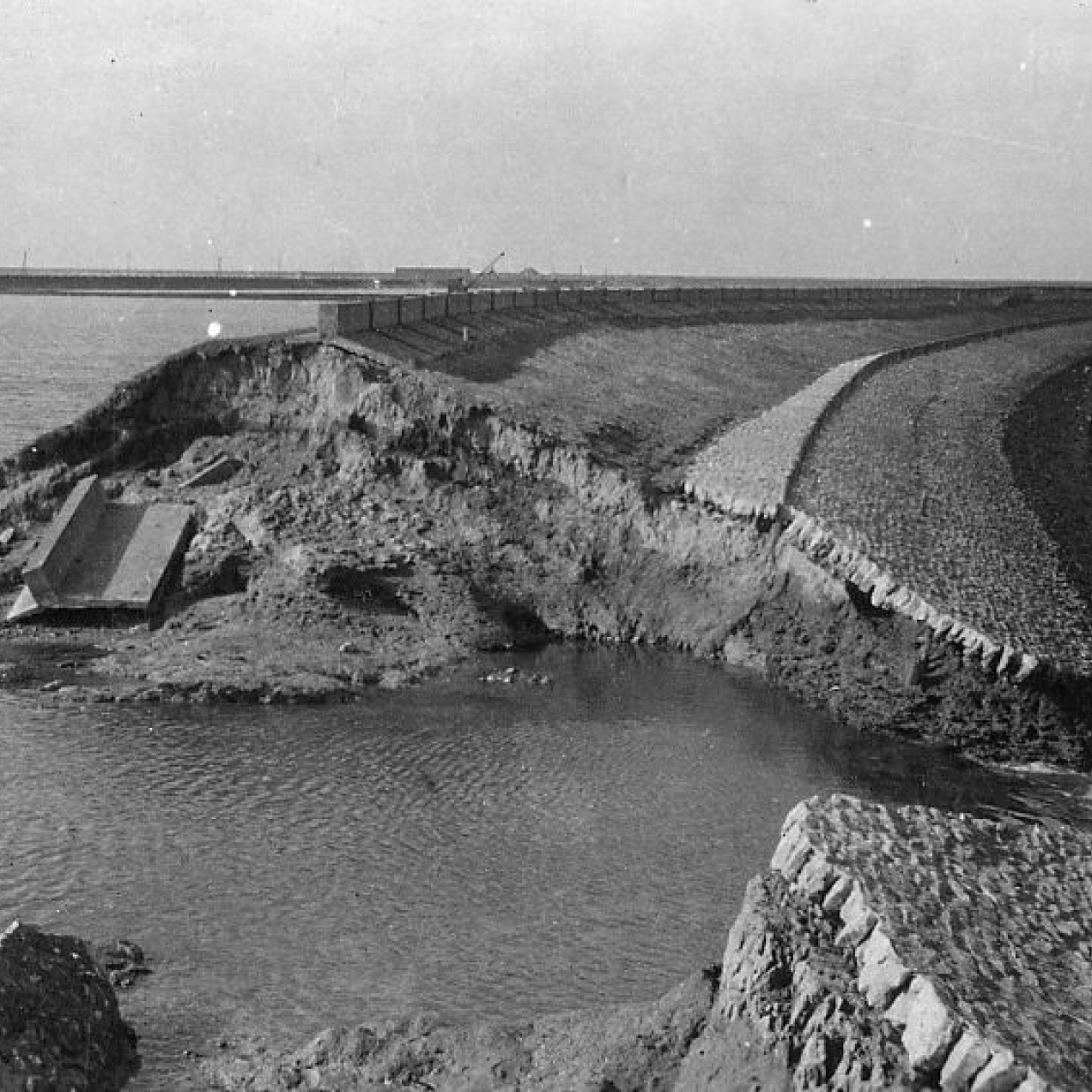High Tide
On Saturday, January 31, water levels were already dangerously high in many places. In Kruiningen, by around 5:00 PM, the water was 3.66 meters above sea level. Ferries and ships had stopped sailing. Didn’t people realize the danger?

It’s not surprising that the people of Zeeland weren’t overly worried. During the war, parts of Zeeland were flooded by the Germans and the Allies, such as in Walcheren. They expected the situation to be somewhat similar.

Breach in the Sea Dike towards Den Osse, past the Harbor Head
Even the authorities said there was no reason to panic. However, not everyone shared this view. Even before World War II, experts had been warning that the dikes were not strong enough.

Persistent Annoyance
Engineer Johan van Veen predicted the flood disaster, yet few took him seriously. They found him rather irritating. His daughter recounts...

After World War II, political attention initially focused on rebuilding the country. Flood defenses, such as dykes, came later. Additionally, there was little cooperation between different municipalities; each managed only their own dykes.
"The Dutch government was aware of the poor condition of the dykes. The weak spots were practically marked on the map. However, nothing was done with that knowledge."
